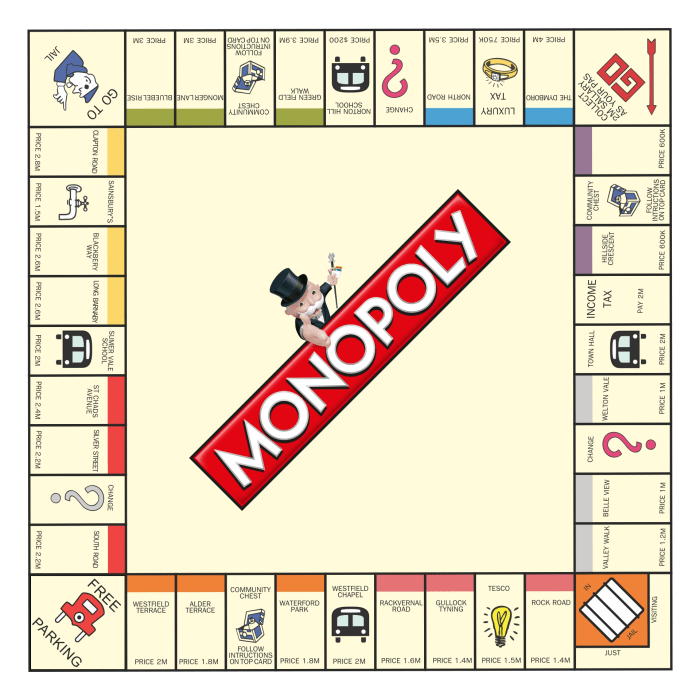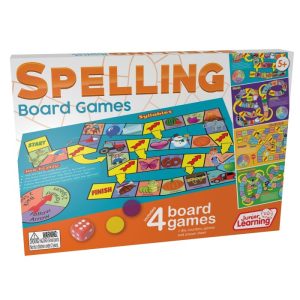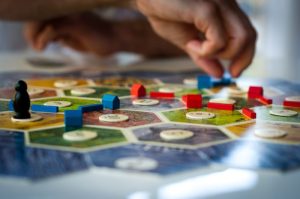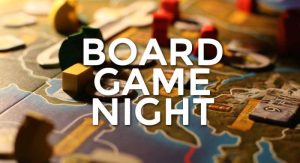
Embark on a journey exploring the world of board games for kids, where fun and education intertwine to create memorable experiences. From classic favorites to innovative creations, discover the magic that these games hold for children of all ages.
Learn about the different types of board games, the educational value they offer, and how they can foster family bonding through engaging game nights. Dive into the realm of DIY board games and unleash creativity with your little ones.
Introduction to Board Games
Board games are tabletop games that involve counters or pieces moved or placed on a pre-marked surface or “board,” according to a set of rules. These games have been popular for centuries and continue to captivate players of all ages, especially children.
Playing board games offers numerous benefits for kids, including:
Development of Cognitive Skills
- Board games help children enhance critical thinking and problem-solving abilities as they strategize their moves to achieve the game’s objective.
- They also improve memory and concentration as players need to remember rules, patterns, and previous moves.
Social Interaction
- Board games provide opportunities for kids to interact with others, promoting communication, teamwork, and sportsmanship.
- Playing board games can also strengthen relationships, foster empathy, and teach children how to take turns and follow rules.
Entertainment and Fun
- Board games offer a source of entertainment that is engaging and enjoyable for kids, providing a break from screens and encouraging face-to-face play.
- They can spark creativity and imagination, leading to hours of laughter and excitement.
Types of Board Games for Kids
When it comes to board games for kids, there are various genres that cater to different interests and developmental stages. From educational games that promote learning to strategy games that enhance critical thinking, there is a wide range of options to choose from. Here are some popular genres suitable for children:
Educational Board Games
Educational board games are designed to make learning fun and engaging for kids. These games often focus on subjects like math, language arts, science, and history, helping children develop academic skills while having fun. Examples of educational board games include “Math Bingo,” “Scrabble Junior,” and “The Brainiac Game.”
Strategy Board Games
Strategy board games require players to think ahead, plan their moves, and make strategic decisions to outwit their opponents. These games help children develop problem-solving skills, critical thinking, and decision-making abilities. Popular strategy board games for kids include “Ticket to Ride: First Journey,” “Catan Junior,” and “Robot Turtles.”
Cooperative Board Games
Cooperative board games promote teamwork and collaboration among players, as they work together to achieve a common goal or overcome challenges. These games encourage communication, social skills, and mutual support. Examples of cooperative board games for kids include “Outfoxed!,” “Forbidden Island,” and “Race to the Treasure.”
Party Board Games
Party board games are designed for larger groups of players and often involve quick gameplay, laughter, and interactive fun. These games are perfect for family gatherings or playdates with friends. Popular party board games for kids include “Charades for Kids,” “Spot It!,” and “HedBanz Junior.”
Educational Value

Board games offer numerous educational benefits for children, helping them develop essential skills while having fun.
Cognitive Skills Development
Playing board games can enhance cognitive skills in children by engaging them in critical thinking, problem-solving, and decision-making. Through strategic gameplay, kids learn to analyze situations, plan ahead, and adapt their strategies based on outcomes. This process stimulates their brains and improves their ability to think logically and creatively.
Social Skills and Teamwork
Board games also promote social skills and teamwork among children. By playing with others, kids learn to communicate effectively, take turns, and collaborate with teammates to achieve a common goal. These interactions help them develop empathy, sportsmanship, and cooperation, essential skills for building positive relationships and working effectively in a team setting.
Best Practices for Choosing Board Games
When selecting board games for kids, it is essential to consider various factors to ensure an enjoyable and educational experience. Here are some best practices to keep in mind:
Age-Appropriateness
Choose board games that are suitable for the child’s age and developmental stage. Look for age recommendations on the game box or description to ensure it aligns with the child’s abilities and interests.
Game Duration
Consider the length of the game when choosing a board game for kids. Opt for games with shorter playtimes for younger children to maintain their attention span, while older kids may enjoy more complex games with longer durations.
Complexity
Take into account the complexity of the game rules and mechanics. Select games that are easy to understand and play for younger children, gradually introducing more intricate games as they grow older and gain experience.
Number of Players
Factor in the number of players required for the game. Choose games that accommodate the desired number of participants to ensure everyone can join in on the fun. Consider whether the child will be playing solo or with friends and family.
How to Introduce Board Games to Kids
Introducing board games to kids can be a fun and rewarding experience for both children and adults. It is essential to approach this introduction with patience, enthusiasm, and a focus on creating a positive gaming environment for the kids.
Start with Simple Games
When introducing board games to kids for the first time, it is best to start with simple games that are easy to understand and play. Games like Snakes and Ladders, Candy Land, or Memory Match are great options for younger children as they have straightforward rules and gameplay.
Explain the Rules Clearly
Before starting a game, take the time to explain the rules clearly to the kids. Use simple language and provide examples to help them understand how the game is played. Encourage questions and be patient in answering them to ensure everyone is on the same page.
Encourage Sportsmanship
Teach kids the importance of good sportsmanship while playing board games. Emphasize the value of playing fair, following the rules, and being gracious winners and losers. Encourage positive behavior and teamwork to create a supportive gaming atmosphere.
Make it Fun and Interactive
To keep kids engaged and excited about board games, make the gaming experience fun and interactive. Use colorful game pieces, create a comfortable playing area, and incorporate elements of storytelling or role-playing to enhance the gameplay. Encourage creativity and imagination during the game.
Celebrate Achievements
Celebrate the kids’ achievements and milestones during the game to boost their confidence and motivation. Praise their strategic thinking, problem-solving skills, and good sportsmanship. Recognizing their efforts and successes will encourage them to continue playing and learning through board games.
Benefits of Family Game Nights
Family game nights are a wonderful way to bring loved ones together and create lasting memories. Not only are they fun, but they also offer a range of benefits for both children and adults.
Strengthening Family Bonds
Family game nights provide an opportunity for bonding and quality time spent together. Playing board games encourages communication, teamwork, and healthy competition among family members. These shared experiences help strengthen relationships and create lasting connections.
Creating Lasting Memories
The memories made during family game nights can last a lifetime. Whether it’s celebrating a victory, laughing at a funny moment, or overcoming a challenge together, these shared experiences become cherished memories that family members can look back on with fondness.
DIY Board Games

Creating homemade board games for kids can be a fun and rewarding activity that not only provides entertainment but also encourages creativity and innovation. DIY board games allow children to personalize their gaming experience, tailor rules to their liking, and showcase their artistic skills. Let’s explore some ideas and benefits of DIY board games below.
Ideas for DIY Board Games
- Use recycled materials like cardboard, paper, and old game pieces to create a unique game board.
- Encourage kids to design their own game board layout, theme, and rules based on their interests.
- Incorporate educational elements such as math problems, spelling challenges, or trivia questions into the gameplay.
- Add a storytelling component where players must create a narrative as they move through the game.
Benefits of DIY Board Games
- Encourages creativity and imagination as children design and customize their own games.
- Promotes problem-solving skills as kids navigate the challenges of game development.
- Fosters a sense of ownership and pride as players see their creations come to life.
- Enhances social interaction as kids collaborate with friends or family members to playtest and refine their games.
Last Recap
As we conclude our exploration of board games for kids, remember that these games not only entertain but also educate, promote social skills, and strengthen family ties. Whether it’s a cozy game night or a DIY creation, the world of board games offers endless possibilities for learning and bonding.
Key Questions Answered
Are board games beneficial for kids’ development?
Yes, board games help enhance cognitive skills, social interaction, and teamwork abilities in children.
How can I choose the right board game for my child?
Consider factors like age-appropriateness, game duration, complexity level, and number of players when selecting a board game for your kid.
What are some popular genres of board games for kids?
Popular genres include educational games, strategy games, and cooperative games, each offering unique learning experiences for children.





